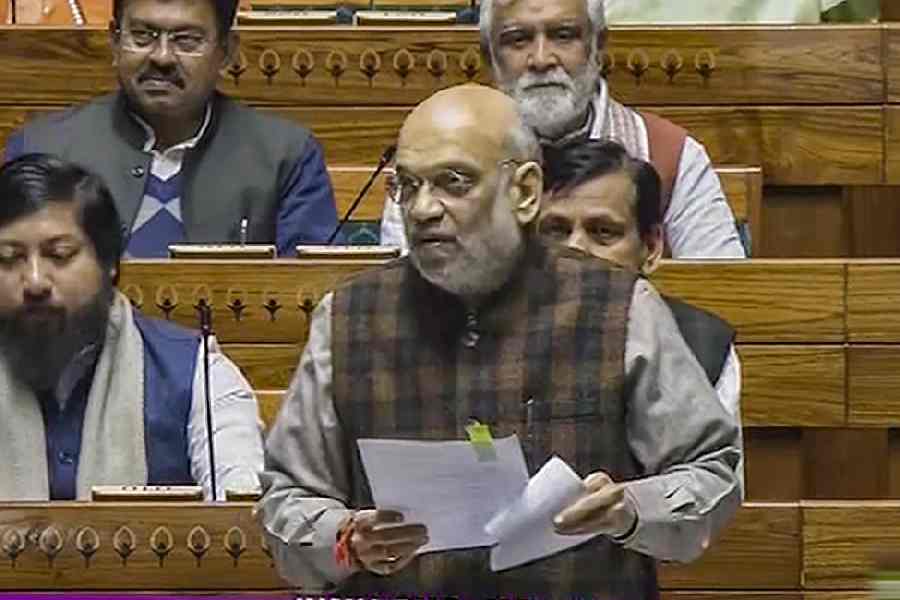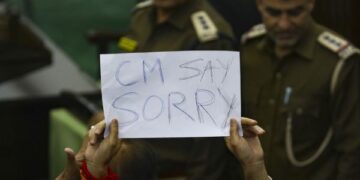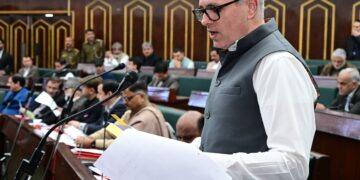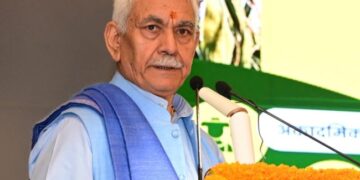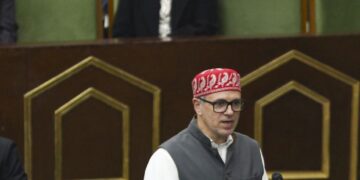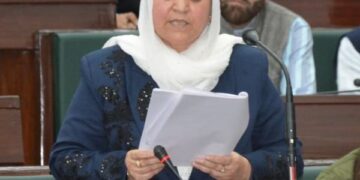New Delhi: Lok Sabha on Wednesday passed three key bills that seek to overhaul the criminal justice system, with Union Home Minister Amit Shah asserting that the focus is on delivering speedy justice rather than handing down punishment.
Replying to the debate, Shah said the three bills – Bharatiya Nyaya (Second) Sanhita, Bharatiya Nagarik Suraksha (Second) Sanhita and the Bharatiya Sakshya (Second) Bill — also have a clear definition of terrorism and scrap sedition as a crime while introducing a new section titled “offences against the State”.
Members of the Congress, DMK, TMC and other opposition parties were not present during the debate after 97 of their colleagues were suspended from Lok Sabha for “unruly” behaviour in the House.
While many opposition parties have been critical of the bills that seek to replace the IPC, CrPC and the Evidence Act, only a handful of non-NDA members, including Hyderabad MP and AIMIM chief Asaduddin Owaisi, MPs of the Biju Janata Dal and Bahujan Samaj, were present in the House.
“I am astonished at how some people defend and save the lives of terrorists in the name of ‘human rights’. Remember, this is neither the rule of Britishers nor of Congress. This is Modi’s rule.
“No arguments to save terrorists will be entertained here,” Shah said, adding the Modi government has explicitly brought ‘terrorism’ under the purview of the criminal justice system.
“We have changed the definition of Sedition from ‘Rajdroh’ (offences gainst the government) to ‘Deshdroh’ (offences against the Nation),” he said noting IPC Section 124, or the Sedition Law, has been repealed.
The purpose of the new law is “not to save the government, but to save the country. In a healthy democracy, everyone has the right to criticise the government, but we will not allow anyone to say anything demeaning about India,” Shah said.
“The sedition law made by the British, under which Tilak, Mahatma Gandhi, Sardar Patel… many of our freedom fighters remained in jail for years and that law continues till date.
“When they were in opposition, they used to protest, but when they came to power, they misused it. For the first time, the Modi government completely abolished the sedition law,” he said.
Shah said the first duty of the state is justice. “Judiciary, Executive and Legislature are the three pillars of democracy. The makers of our Constitution divided the work among these three to give strong administration to the country. Today, for the first time, these three together will give the country a justice-centric criminal system and not a punishment-centric one,” he said,
For the first time, laws are going to be made according to the spirit of our Constitution under the leadership of Modi.
“I am proud to have changed these three laws after 150 years. Some people used to say that we do not understand them, I tell them that if you keep your mind as an Indian then you will understand. But if your mind is of Italy, you will never understand,’ Shah said in a swipe at the opposition Congress.
The new laws are framed by keeping in mind the core values of our Constitution- individual freedom, human rights and equal treatment for all, Shah said.
The bills were first introduced during the monsoon session of parliament in August. After the standing committee on home affairs made several recommendations, the government decided to withdraw the bills and introduced their redrafted version last week.
Replying to the debate, which started on Tuesday and continued on Wednesday, Shah said three major amendments have been brought in the bills and these include giving relief to medical professionals who sometimes face intimidation from kin of patients.
Shah said the three proposed laws were drafted after comprehensive consultations. “I personally had 158 meetings. Not only every line, I have read every comma and every full stop of the bills,” he said.
Highlighting achievements of the Narendra Modi government, the home minister said it delivers on every promise it makes. “We had said that we would remove Article 370 and 35-A, we removed it. We had promised that we would end terrorism.. and give a free hand to the security personnel, we delivered.
“We have said we will construct the Ram temple in Ayodhya and as promised the idol of Lord Ram will be consecrated on January 22,” he said amid ‘Jai Shri Ram’ chants by members of the treasury benches.
Participating in the debate, Owaisi alleged that the new criminal bills are a threat to the civil liberties and rights of the people as they give sweeping powers to the police to act as “judge, jury and executor”.
He said several provisions have been incorporated in the BNS which were “very dangerous”.
Speaking in the same vein, Shiroman Akali Dal (SAD) leader Harsimrat Kaur Badal said such important bills should not be passed in such a way.
“Such an important bill is being discussed. It should be done in a fair and transparent manner with everybody allowed to air their views and here there is only the ruling party and a handful of us opposition people,” she said.
Shah said no one should try to protect anyone involved in terrorism citing the clause of freedom of speech because terrorism is the worst human rights violation. “Anyone involved in terrorism must be given harsh punishment,” he said.
He said the existing criminal laws were reflective of the colonial mindset with the intention to punish and not impart justice. They prioritised acts of “looting the treasury”, “uprooting rail tracks” and “insult to the Crown” over crimes against women and children, human rights, border security, and the army.
Listing the features of the bills, he said, “This bill punishes mob lynching with the death penalty.
“(Congress leader P) Chidambaram kept asking me what about mob lynching. He does not understand the BJP and our mentality. Why did you not penalise mob lynching during your rule?
“The three bills reflect the spirit of the Constitution…but those with an Italian mindset will never understand it,” he said asserting that the three proposed laws were based on justice, transparency and fairness.
“This is the first government which has fulfilled the promises it has mentioned in its manifesto. We have revoked Article 370, removed AFSPA in 70 per cent areas in the northeastern states, banned triple talaq and gave 33 per cent reservation to women in Parliament,” he said.
On the criminal justice system, the home minister said the timeline has been the biggest barrier to securing justice in the country.
“Justice is not delivered timely….tarikh pe tarikh milti hain (prolonged trial) …everyone keeps shifting the blame on each other,” he said.
“For the poor, the biggest challenge to get justice is finance… now, we have made many things clear in the new laws…there will be no lingering on,” he said.
Shah said that now an FIR will have to be filed within three days of receiving the complaint and the preliminary enquiry will have to be finished within 14 days… .
“The judges will not be able to reserve judgement for more than 45 days.. the accused will get seven days to file a plea for acquittal… The judge has to hold the hearing in those seven days, and in a maximum time of 120 days, the case would come to trial.
“There was no time limit for plea bargaining earlier. Now if one accepts their crime within 30 days of the crime then the punishment would be less…,’ he said.
The minister said a provision for “trial in absentia” has also been introduced.
Shah said those who have fled the country after committing crimes, killing hundreds of people in bomb blasts or those who are hiding in Pakistan after carrying out terror attackas will not be spared.
“Whether you come or not, the trial will be continued, there will be punishment and their property will also be confiscated,” Shah said.
Key points of Bharatiya Nyaya Sanhita which will replace IPC
Following are the key points of the Bharatiya Nyaya (Second) Sanhita, which was passed by the Lok Sabha on Wednesday and seeks to replace the Indian Penal Code (IPC) of 1860.
* Twenty new offences have been added in the Bharatiya Nyaya Sanhita (BNS)
* Nineteen provisions that existed in IPC have been deleted
* In 33 offences the punishment of imprisonment has been increased
* In 83 offences the punishment of fine has been enhanced
* In 23 offences the mandatory minimum punishment has been introduced
* In six offences the punishment of ‘community service’ has been introduced
Major Changes:
* Definition of child is introduced
* Transgender is included in the definition of ‘gender’
* Electronic and digital records are included in the definition of document
* The definition of ‘movable property’ is widened to include property of every description
* New chapter on offence against woman and child is introduced
* New chapter on ‘inchoate offences’ (attempt, abetment and conspiracy) is introduced
* New offences like organised crime, terrorist act, petty organised crime, hit and run, mob lynching, hiring child to commit offence, sexual exploitation of woman by deceitful means, snatching, abetment outside India, acts endangering the sovereignty, integrity and unity of India, publication of false or fake news etc. have been introduced
* Attempt to commit suicide is deleted
* Beggary has been introduced as a form of exploitation for trafficking
* In the definition of grievous hurt the number of days has been reduced from 20 days to 15 days
* Community service is provided as a punishment for theft of less than Rs 5,000
* Reorganisation of offences are made wherein similar provisions have been clubbed together.
Minor Changes:
* At nine places the archaic expressions like ‘lunatic’, ‘insane’ and ‘idiot’ have been done away with
* Colonial remnants like ‘British calendar’, ‘Queen’, ‘British India, ‘justice of the peace’ have been deleted.
* In 44 places ‘Court of Justice’ has been replaced with ‘Court’
* Uniformity has been brought in use of expression ‘child’ throughout the BNS
* Contemporary style of drafting has been used
* At 12 places ‘denotes’ has been replaced with ‘means’ and ‘that is to say’ is replaced with ‘namely’ at three places.

